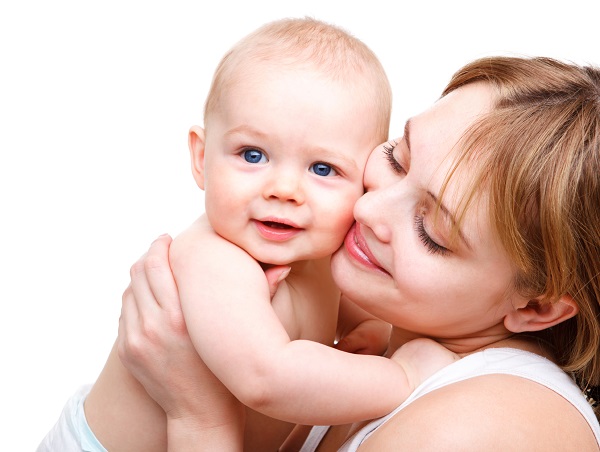 When our two boys were infants, we cuddled and hugged them often, and that simple gesture of warm, heart-felt contact offered a number of health benefits. To learn more about the health benefits of cuddling and hugs, I reached out to Stephanie Marcy, PhD, psychologist at Children’s Hospital Los Angeles.
When our two boys were infants, we cuddled and hugged them often, and that simple gesture of warm, heart-felt contact offered a number of health benefits. To learn more about the health benefits of cuddling and hugs, I reached out to Stephanie Marcy, PhD, psychologist at Children’s Hospital Los Angeles.
“Cuddling helps your baby develop a secure attachment to you," Marcy explains. "The bond developed has effects later in your child’s life in terms of self-confidence, healthy individuation and exploration, expression of empathy, social relationships and ability to cope with life stressors."
Babies who don’t experience cuddling have been found to have markedly lower levels of oxytocin and vasopressin. These two hormones are thought to play key roles in stress and social behaviors. Lower levels may explain why these children have difficulties forming attachments in adulthood.
How Cuddling is Healthy for Children and Parents
As a nurse in the Newborn and Infant Critical Care Unit (NICCU) at Children’s Hospital Los Angeles, I experience first-hand the benefits of human touch on premature babies, newborns, and children. Many of the health benefits to child and parent include:
- Creating a healthy sense of personal boundaries
- Encouraging calmness and relaxation
- Improving muscle tone and circulation
- Improving pulmonary and immune functions
- Improving sleep patterns
- Lowering anxiety and stress
- Reducing discomfort from teething, congestion, colic and emotional stress
- Strengthening digestive, circulatory, and gastrointestinal systems
Marcy explains, “For children who are very sick and not strong enough to engage in playful interaction with their caregivers, cuddling and holding is a nice way for parents to feel that they are interacting with their child in a loving and meaningful way. This helps decrease their sense of helplessness.”
What Kangaroos Teach Us
Kangaroo care is skin-to-skin contact between your baby’s front and your chest. Marcy suggests that holding your baby also promotes breastfeeding because it helps develop the parent-child bond. Kangaroo care can help your baby by:
- Encouraging successful breastfeeding and milk production
- Encouraging weight gaining (When your baby depends on your body to stay warm, they use fewer calories to stay warm on their own)
- Maintaining their body temperature
- Regulating their heart and breathing rates
- Spending more time in deep sleep
- Spending more time being quiet and alert rather than crying (Brain wave patterns associated with happiness have been shown to double when you model Kangaroo care with your baby)
Babies who are held often and have their needs met are more likely to have higher self-images and learn they are respected and worthy. As Marcy mentioned earlier, cuddling and contact help your child build self-confidence and social relationships. Additionally, even giving your child a big hug can be a nice way to show love, pride, understanding, and support.
By Robert Giesler, BSN, RN, CPST, Pediatric Nurse, Newborn and Infant Critical Care Unit (NICCU) at Children’s Hospital Los Angeles. To read more of Robert’s pediatric health care tips, visit WeTreatKidsBetter.org.
We aim to provide you with the most honest and credible information possible. This article was reviewed for accuracy by The Honest Team and its internal technical experts.
blog_review_statement








